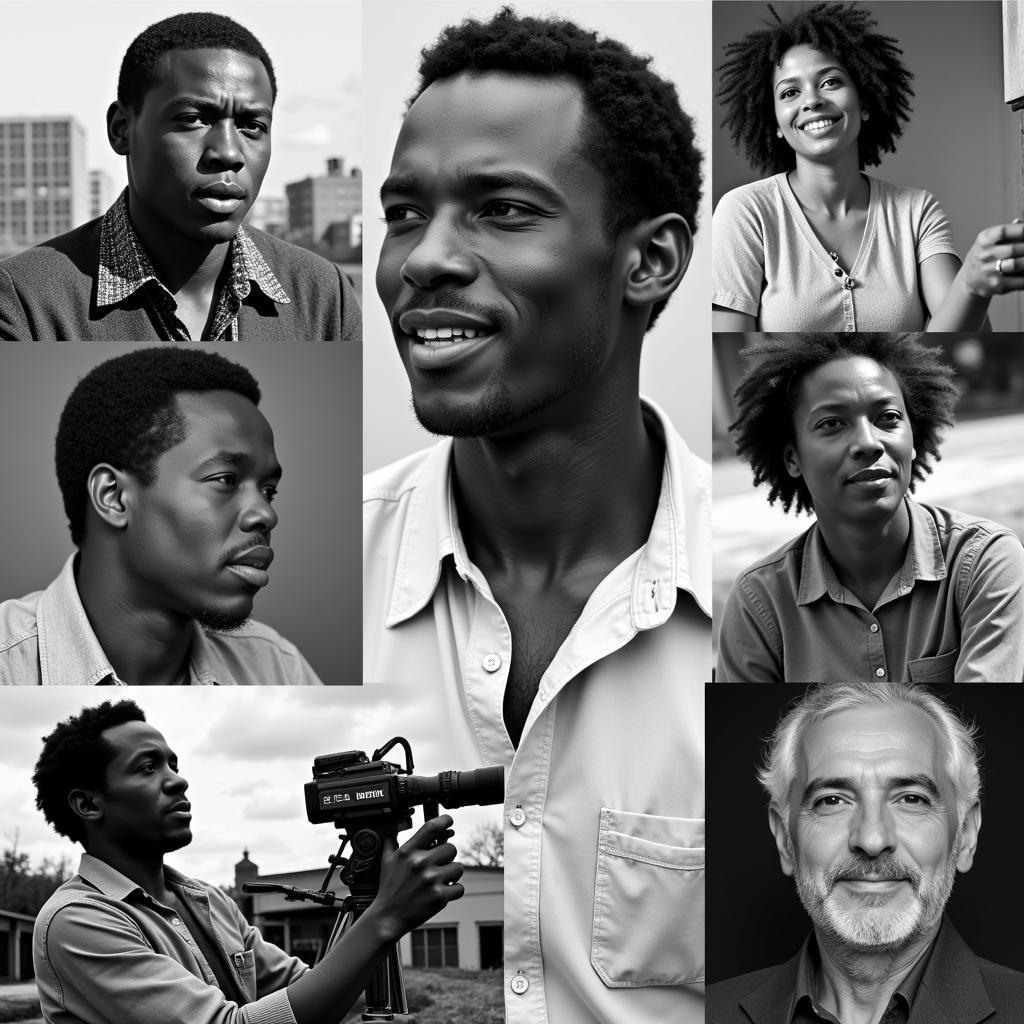African Cinema Wiki: Your Guide to the Diverse World of Movies from the Continent
African cinema, a vibrant tapestry woven from diverse cultures and languages, offers a unique perspective on the world. From the sun-drenched landscapes of North Africa to the bustling cities of the south, film has served as a powerful tool for storytelling, social commentary, and cultural preservation across the continent. This African Cinema Wiki delves into the rich history, notable filmmakers, and must-watch films that have captivated audiences worldwide.
A Journey Through Time: Exploring the History of African Cinema
The story of African cinema begins in the early 20th century, shortly after the invention of filmmaking. Initial productions were largely documentaries, often influenced by colonial perspectives. However, as independence movements swept across the continent in the mid-20th century, a new wave of filmmakers emerged. These pioneers used the medium to tell their own stories, reflecting the struggles and triumphs of their newly independent nations.
 Pioneering African Filmmakers
Pioneering African Filmmakers
Key Movements and Genres in African Film
African cinema is not a monolith; it encompasses a diverse range of genres and movements. From the poetic realism of Senegalese filmmaker Ousmane Sembène to the captivating narratives of Burkina Faso’s Idrissa Ouédraogo, each filmmaker brings their unique vision to the screen.
1. The Birth of National Cinemas:
The post-independence era saw a surge in national cinema movements. Countries like Senegal, Mali, and Burkina Faso established film schools and festivals, nurturing a new generation of filmmakers. These filmmakers often focused on themes of national identity, colonialism, and the challenges of modernization.
2. The Rise of Women Filmmakers:
Women have played a crucial role in shaping African cinema. Pioneers like Safi Faye (Senegal) and Anne Mungai (Kenya) challenged societal norms and brought fresh perspectives to the screen. Their films often explore themes of gender, identity, and social justice.
3. Contemporary Trends in African Filmmaking:
Today, African cinema continues to evolve, embracing new technologies and exploring a wider range of genres. From Afrofuturism to LGBTQ+ narratives, filmmakers are pushing boundaries and engaging with global audiences in innovative ways.
 Contemporary African Film Festival
Contemporary African Film Festival
Notable Filmmakers Shaping the Landscape
African cinema boasts a wealth of talented filmmakers who have gained international recognition for their exceptional work. Some of the most influential figures include:
- Ousmane Sembène (Senegal): Considered the “father of African cinema,” Sembène’s films often explored themes of colonialism, poverty, and social injustice.
- Souleymane Cissé (Mali): Cissé’s films are known for their stunning visuals and allegorical storytelling, often drawing inspiration from Malian folklore.
- Sarah Maldoror (Guadeloupe/Guinea-Bissau): A pioneer of African liberation cinema, Maldoror’s films gave voice to marginalized communities and challenged colonial narratives.
- Djibril Diop Mambéty (Senegal): Mambéty’s work is characterized by its experimental style and thought-provoking narratives, often exploring themes of urban alienation and identity.
Must-Watch Films to Add to Your List
No exploration of African cinema is complete without experiencing its diverse filmography. Here are a few essential films to get you started:
- Black Girl (La Noire de…), 1966 (Senegal): Ousmane Sembène’s groundbreaking film follows the tragic story of a young Senegalese woman who moves to France to work as a nanny.
- Yeelen (Brightness), 1987 (Mali): Souleymane Cissé’s visually stunning film tells the tale of a young man’s journey of initiation in ancient Mali.
- Moolaadé, 2004 (Senegal): Ousmane Sembène’s powerful film tackles the controversial subject of female genital mutilation.
- Timbuktu, 2014 (Mauritania): Abderrahmane Sissako’s poignant film offers a powerful critique of religious extremism in contemporary Africa.
 Essential African Cinema Posters
Essential African Cinema Posters
The Future of African Cinema: A Bright Horizon
African cinema continues to captivate audiences worldwide, offering fresh perspectives and powerful narratives. With the rise of streaming platforms and increased global interest, the future of African filmmaking is bright. By supporting African filmmakers and engaging with their work, we can contribute to the ongoing growth and evolution of this vital art form.



